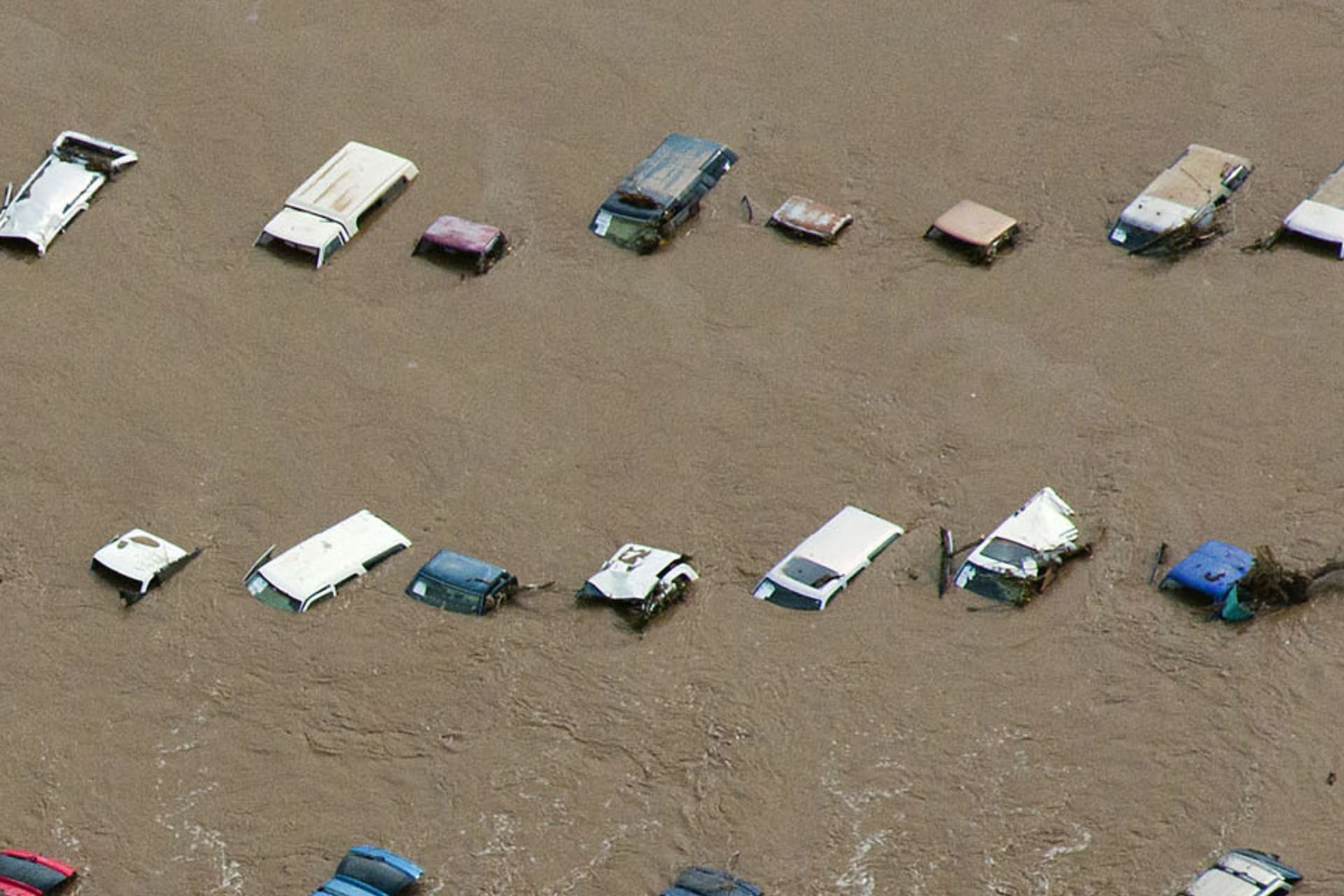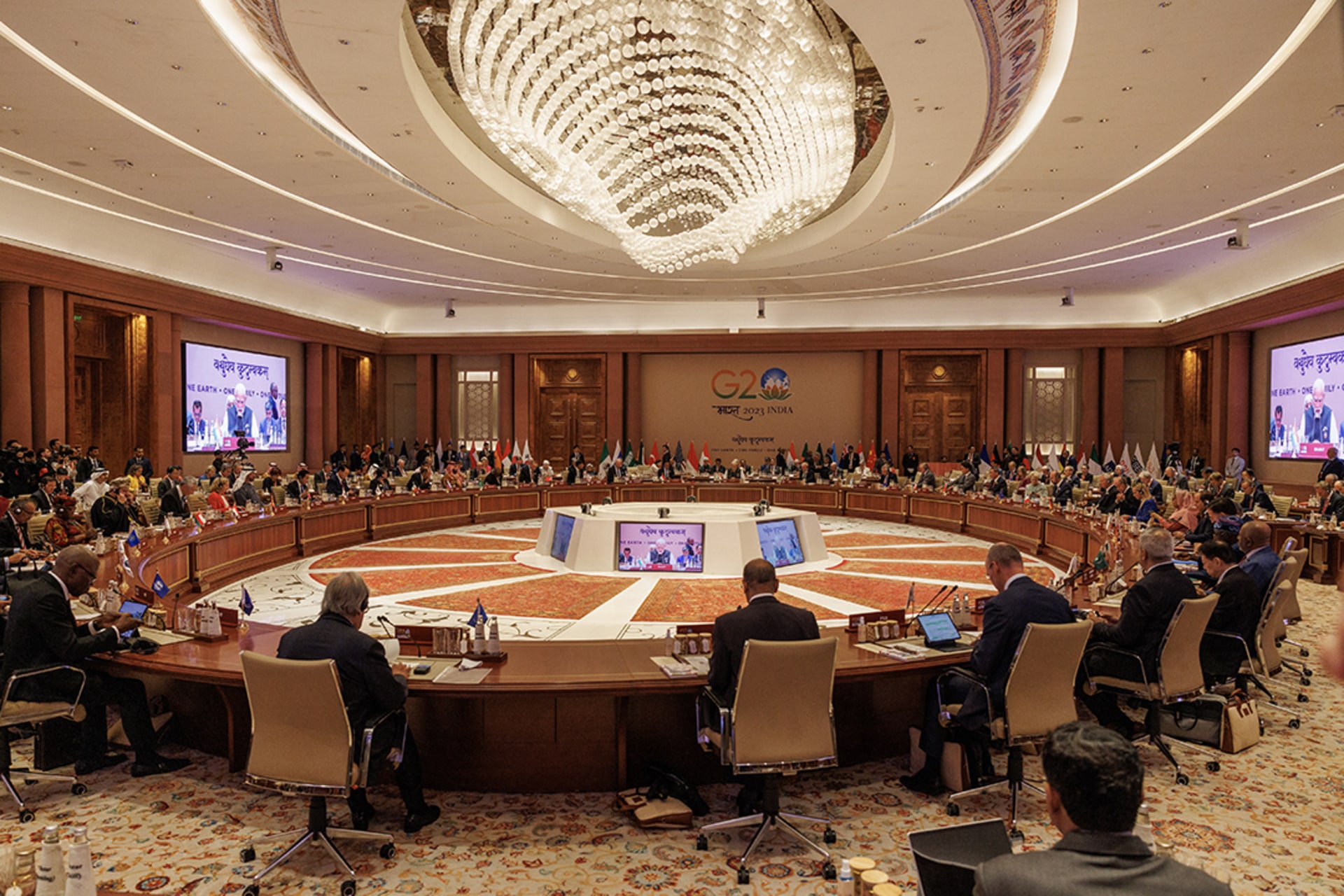Iraq’s Media Takes Its First Steps
Published
This publication is now archived.
Introduction
As Iraq prepares to hold elections for a new government, cfr.org looks at the country’s rapidly expanding media options. “Iraqis are avid listeners, watchers, and readers of news,” says Jane Arraf, former CNN Baghdad bureau chief and the Edward R. Murrow press fellow at the Council on Foreign Relations. “After all, these are life and death issues in many cases.” And while Iraq’s media industry is not yet entirely established, “there’s a degree of press freedom in Iraq right now that’s very unusual in the Arab world,” says Hussein Ibish, the former Washington correspondent for Lebanon’s Daily Star.
How many media outlets are there in Iraq?
Dozens, experts say. “There’s a massive proliferation of print publications,” says Gary Gambill, a Middle East expert at Freedom House and former editor of the Middle East Intelligence Bulletin. “Daily newspapers, weeklies, semi-weeklies—anyone with something to say and a little bit of money can put out a paper.” Most of these publications were started after the fall of Saddam Hussein’s regime in 2003, when there was “an explosion” of newspapers, Ibish says. Judith Yaphe, a Middle East expert at the National Defense University, says that at one point after the fall of Saddam, there were over 200 “newspapers” in Iraq, some of them just simple printed sheets.
How many are run by Iraqis?
Most are, Arraf says. Many of the mainstream papers are run by former Iraqi exiles who returned after the fall of Saddam with journalism experience in London, the United States, or the Persian Gulf. But other, newer papers are run by former Iraqi government journalists—who worked for publications widely seen as mouthpieces for Saddam during his rule—or “people who had no connection to journalism at all,” Arraf says.
Are many of them politically influenced?
While several publications are sometimes overtly manipulated by political parties or the government, most are “still trying to develop their own independence,” Ibish says. “There really isn’t a tradition of independent media in Iraq, and most newspapers are tied to political parties or business people or various factions,” Arraf says. “Every politician and faction has its press and publicist,” Yaphe says, and the newspapers they create “reflect the political views of the parties that own them,” says Kathleen Ridolfo, an Iraq analyst at Radio Free Europe/Radio Liberty, which also runs its own “Radio Free Iraq” network. In addition, some publications are funded by foreign governments or non-governmental organizations but run by Iraqis, Arraf says.
Iraqi television is still state-run, experts say, a fact that former interim Prime Minister Ayad Allawi tried to exploit to his advantage in the run-up to the January 2005 elections for a provisional Iraqi government. Allawi dominated the airwaves, but all his media exposure didn’t help his coalition, which won only 14 percent of the seats in parliament. Ibish cites this fact as evidence that official media outlets have little influence with Iraqis. Allawi’s constant presence on state television “didn’t help him much,” Ibish says.
Are local newspapers credible?
Al-Jazeera is a unique case. The network has been banned indefinitely by the government from operating in Iraq since February 2004, “which is a major violation of press freedom,” Ibish says.
There are varying degrees of competence, experts say. “Often, you’ll read a newspaper story without one of the five Ws: who, what, where, when, why,” Ridolfo says. Logistical problems also have an impact. “There are dailies that publish once or twice a week” due to lack of funds, she says. Some newspaper websites have no archives, so their stories are not searchable. In addition, each publication delivers only the perspective of their party. “You’ll never get the whole story from one paper,” Ridolfo says. Other experts say the Kurdish newspapers, with a ten-year head start on operating freely, are well ahead of their counterparts in other parts of the country. “Some of the most interesting journalism [in Iraq right now] is happening in Kurdistan,” Ibish says.
What is the quality of reporting done by Iraqi news sources?
It’s not up to Western standards, experts say. “The journalistic standards—checking facts, verifying sources—aren’t what we’d consider up to par,” Arraf says, but points out that in Iraq up until only two years ago, journalists either worked for the government or operated under severe restrictions. “Are [Iraqi news sources] credible in the sense of having the rigorous fact-checking of a New York Times story? No. But they have some credibility in the Arab world,” Gambill says. And while Ridolfo says standards are “not anywhere close” to Western levels, the situation is improving, largely through the training Iraqi journalists get from foreign writers and editors. Canada, the United States, Germany and the Czech Republic are among the countries that have sent journalism trainers to Iraq.
How do most people get their news?
From a myriad of outlets: television, radio, Internet, and print media, both local and foreign. Arraf says many Iraqis still rely on the radio for news. “Radio was how Iraqis got their news before the war,” she says. “Satellite TV was banned, which left only Iraqi government channels for most people, but they could always listen to foreign radio in the privacy of their homes.”
Do Iraqis trust local sources or international ones more?
Al-Arabiya and al-Jazeera, both Arab-owned satellite channels and based in the Persian Gulf region, are widely watched, experts say. To a lesser extent, so are Western networks like CNN and the BBC. “The BBC has a very good reputation in the Arab world,” Ibish says, while American sources like CNN are viewed with greater skepticism. But no one accepts everything they see or read. “People in the Middle East tend to be mistrusting of things they hear,” Gambill says. This is particularly true in Iraq, Arraf says. “Iraqis know their government and journalists lied to them when Saddam was in power, and they expect the same from the media in other countries.” In addition to local newspapers, London-based publications like al-Hayat, and al-Quds al-Arabi are widely read, as are state-sponsored publications from neighboring countries, like Egypt’s al-Ahram.
Al-Jazeera is a unique case. The network has been banned indefinitely by the government from operating in Iraq since February 2004, “which is a major violation of press freedom,” Ibish says. However, the network is not banned from broadcasting to Iraq. “If you have a satellite hookup in Iraq or can get to one, you can watch it,” Gambill says. Ibish says many regular Iraqis watch al-Jazeera, particularly its influential talk shows, which often feature incendiary figures supporting the “resistance movement” in Iraq. “The Shiites and Kurds in the government hate al-Jazeera” because they see it as encouraging the insurgency, Ibish says.
Has Iraqi journalism improved since the war?
Definitely, experts say. Arraf, who was based in Iraq for many years both before and after the fall of Saddam, says “it’s been really heartening to see the evolution of the Iraqi media.” She says she’s noticed a real change in Iraqi reporters, who went from being unsure about asking questions at early press conferences to now being “persistent and aggressive and much more confident,” she says.
Arraf, who was based in Iraq for many years both before and after the fall of Saddam, says “it’s been really heartening to see the evolution of the Iraqi media.
“The media under Hussein was a travesty of a travesty,” Ibish says. “At least people now have their choices.” Ridolfo agrees. “In the short term,” she says, “the strength of party and tribe is so strong it’ll be difficult to develop a fully free media, [but] in the long run, I’m sure it’ll improve greatly.”
How do Iraqis feel about U.S.-backed media like Radio Free Iraq?
It’s a detrimental association, experts say. “Having a clear U.S. link to a network or newspaper can be the kiss of death right now, literally and figuratively,” Arraf says. “All journalists in Iraq now are under threat, but those linked to the United States even more so. If Iraqis are skeptical of what they hear in their own media, they’re doubly so of what they hear from sources they know are funded by the United States.” The U.S.-funded al-Hurra television network is not as successful as the Arab channels, and hasn’t done as well in Iraq as the United States had hoped, she says.
What has been the effect of the reports of Pentagon interference in Iraqi newspapers?
In early December, revelations emerged that a secret program run by a Pentagon media contractor—the Washington-based Lincoln Group— had paid Iraqi newspapers to run stories by U.S. soldiers. They were not identified as such, but offered as independent news stories. The Pentagon also reportedly paid Iraqi reporters to write “positive” stories about U.S. accomplishments in Iraq. The reports raised great alarm and dismay in Iraq and the United States. Many commentators decried the policy as cynical, hypocritical, and counterproductive to efforts to develop a free, independent Iraqi media. “It’s disgraceful that the DoD [Department of Defense] is bribing journalists,” Ibish says. “It’s not exactly the kind of ethos you want to see developed toward the press.”
t
Colophon
Staff Writers
- Esther Pan





